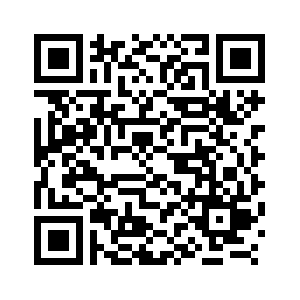BAGHDAD, Nov. 1 (Xinhua) -- After a year of a tough political row that threatened to drag Iraq into chaos and violence, a new government led by Prime Minister Mohammed Shia' al-Sudani was finally formed. Analysts believe that there are tough challenges ahead facing the new prime minister and his cabinet.
On Thursday evening, the Iraqi parliament approved al-Sudani's cabinet and his government program, which includes combating corruption, addressing the unemployment and poverty problems, as well as improving public services and economic reforms.
However, many local analysts believe that it is still too early to see how the situation will develop as the challenges faced by al-Sudani are daunting due to the deep disagreements between the rival Shiite blocs.
"Al-Sudani's government program is very ambitious and may not be able to implement within a short period of one year, and even if he partially can, he will need the cooperation and support of the political blocs," said Abdul Aziz al-Jubouri, a teacher of media at the Baghdad-based al-Iraqia University.
Al-Sudani's major challenge is how to deal with the influential Shiite cleric Moqtada al-Sadr, who is capable of mobilizing tens of thousands of his supporters against his rivals, al-Jubouri said.
Al-Sudani is part of the Coordination Framework (CF), an umbrella group of Shiite parliamentary parties, which became the largest bloc in the Iraqi parliament after al-Sadr in June ordered his followers to withdraw from the parliament.
Keeping al-Sadr calm and trying to satisfy him is the first challenge for the new government, as a failure heralds unpleasant scenarios, the best of which may be the resignation of al-Sudani's government, and the worst of which is a street confrontation between CF and al-Sadr supporters, according to al-Jubouri.
"Al-Sadr is expected to remain on the margins of the political scene at this stage, and he will later use his power in the street to pressure his opponents within the CF, either to bring down their government or call for early elections if he feels that his opponents try to stay in power for a longer period," he concluded.
Another major challenge for al-Sudani's government is gripping the control of armed groups and weapons, as most armed groups are associated with certain Shiite parties in the government, he said.
As for the external challenges, al-Sudani's government will have to pursue a clear and balanced diplomatic stance with regional neighbors and other countries, including the continuation of facilitating new rounds of direct talks between Saudi Arabia and Iran.
He also has to seek better relations with Türkiye to cooperate, especially on the issue of water, as Iraq suffers from low levels of water flowing in the Tigris and Euphrates rivers, which originate from the Turkish territory. In addition, Iraq needs to cooperate with Türkiye on the issue of exporting its oil via Ceyhan port on the Mediterranean.
Hussein Latif, a lecturer of economics at al-Mustansriyah University in Baghdad, told Xinhua that he sees that the root of most of Iraq's crises is corruption, which makes any government almost incapable of responding to the needs of the Iraqi citizens.
"Al-Sudani's success in combating corruption will enable him to introduce significant economic reform in various fields, and diversify Iraq's sources of income to reduce its dependence on its oil revenues," Latif said, underlining the fact that more than 90 percent of Iraq's revenues come from crude oil exports.
Najib Khalaf, a professor of Law at al-Iraqia University, believes the current political lull is hinting that al-Sudani's political opponents are giving him the opportunity to implement his promised political agenda.
He believes that al-Sudani should take advantage of the calm political window by giving strong signals that he is serious about implementing his ambitious government program to gain people's trust.
"There is currently a financial abundance made by the oil revenues that may enable al-Sudani to materialize a large part of his government program," Khalaf said.
Khalaf's comment was referring to the last speech made by Mustafa al-Kadhimi on the day of the al-Sudani government's approval, in which he reviewed the achievements of his government, saying that Iraq's foreign exchange reserves hit 85 billion U.S. dollars and its gold reserves amounted to 134 tonnes.
Such an amount of money can help rebuild infrastructure in the war-ravaged country after the parliament approves the annual state budget once submitted by the government, he added. ■



